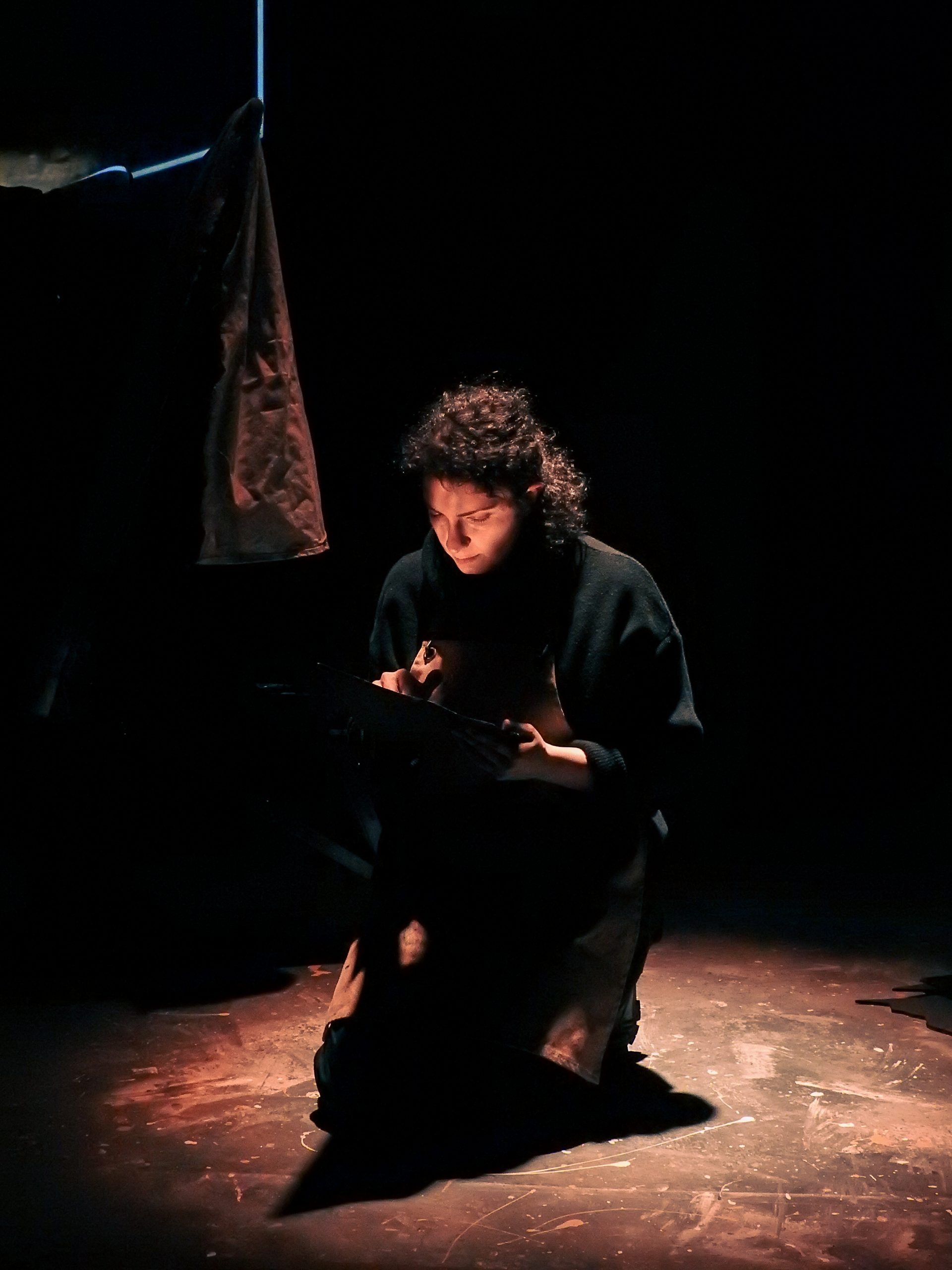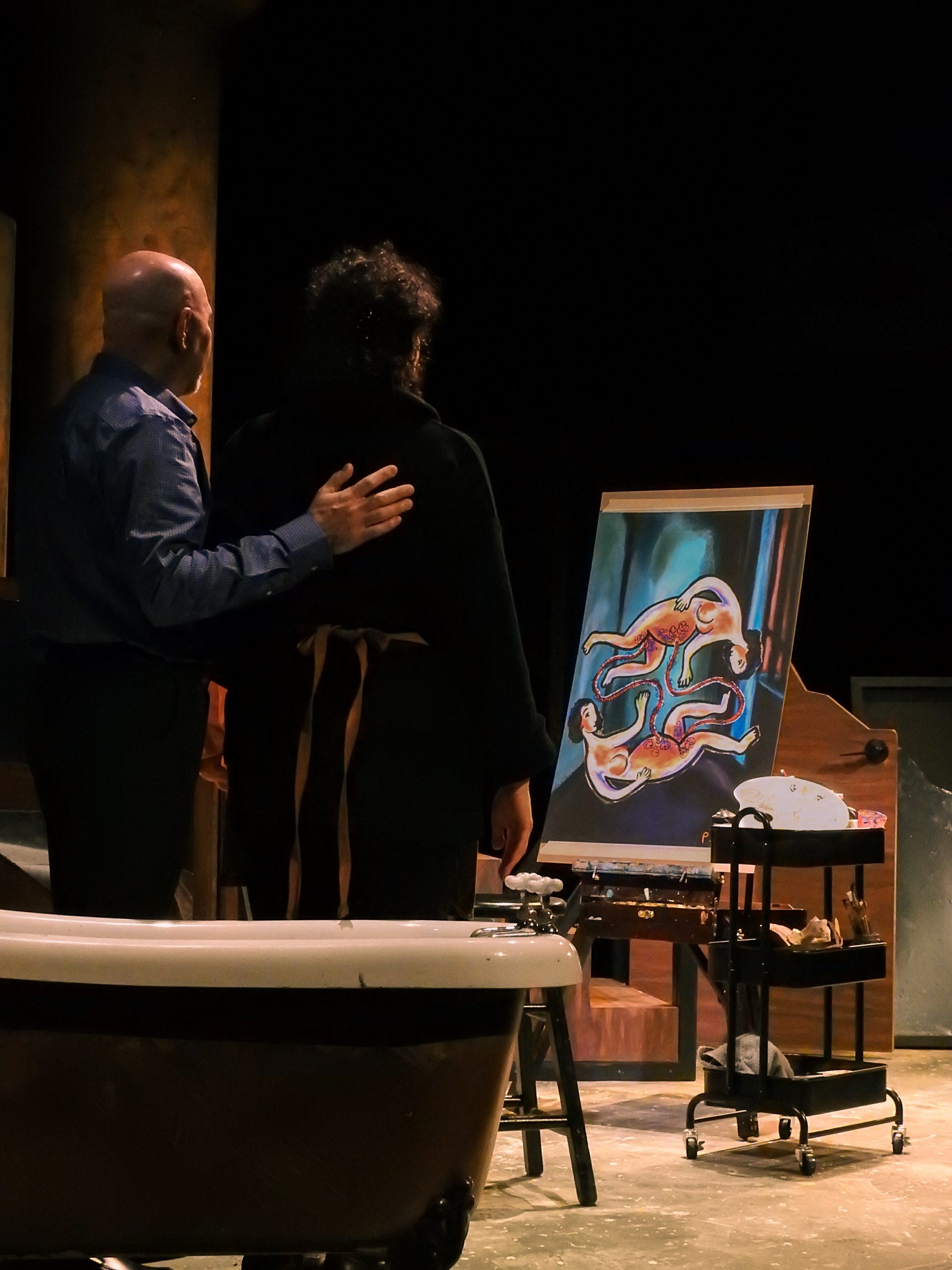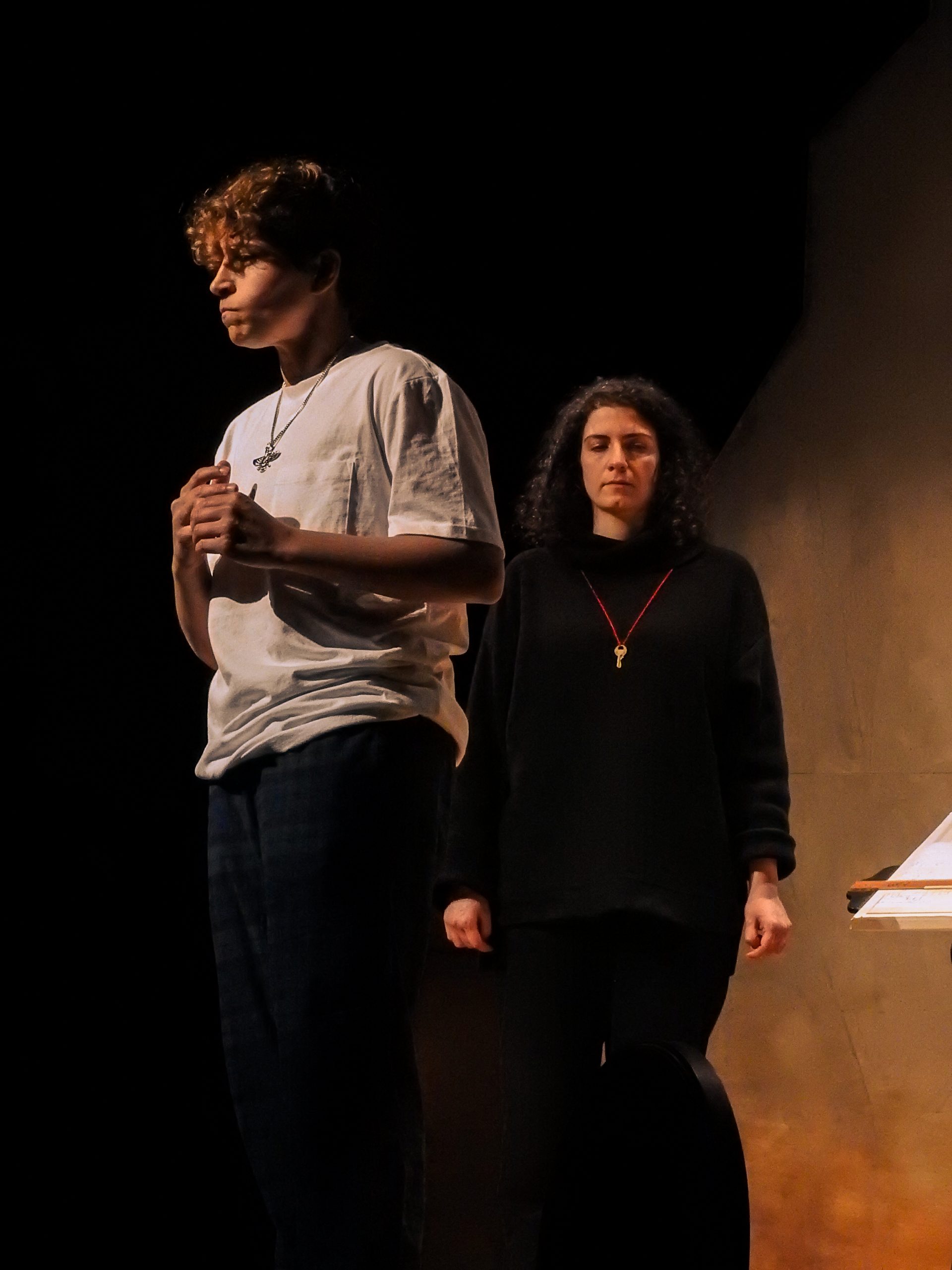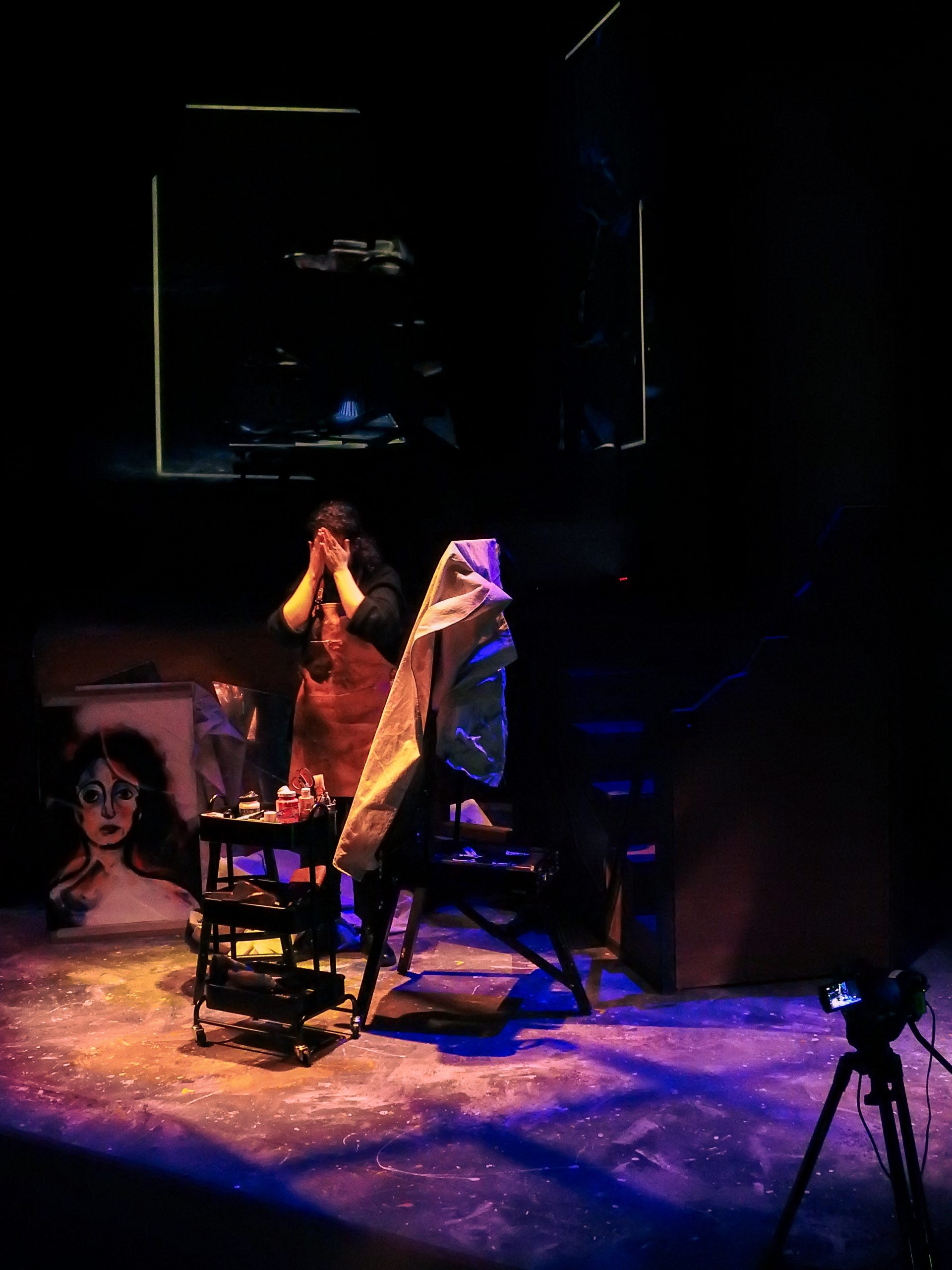
Credit: Pauline Vega Carrillo
The Cultch Historic Theatre to April 14, 2024
Tickets from $29 at 604-251-1363 or www.thecultch.com
Posted April 8, 2024
The adage regarding dramaturgy is, “If the world premiere of a play goes well, the playwright is praised; if it goes badly, the dramaturg is blamed.” Dramaturgy consists of advising the playwright and/or the director during the lead-up to performance. It requires tact, patience, humility, finesse, kindness and a thick skin. Years ago I spoke to the dramaturg of a new play that was a real train wreck. She told me the playwright simply would not take advice. What more can a dramaturg do?
Buried somewhere in Parifam, running two hours plus intermission, is an important play about trauma and the effect it has on everyone – not just the sufferer. But between playwright Aki Yaghoubi, an award-winning Iranian-Canadian theatre artist, and Diane Roberts, the dramaturg, there’s so much going on, so many mysteries, so many very short scenes that do not advance the plot, and so much tension right off the top, that it’s very heavy going.

Credit: Pauline Vega Carrillo
Parifam, an architect and artist, and her childhood friend Ramak, a documentary filmmaker, reconnect in Montreal almost twenty years after Parifam abruptly left Iran. Now, an Iranian museum designed by Parifam and built in Montreal is about to open; treasures from Iran, arranged for by Ramak’s husband, are expected to arrive just in time for the opening. Accompanying her husband in Montreal, Ramak wants to make a documentary film about her old friend Parifam.
But Ramak (Nazanin Shoja) and Parifam (Foojan Nixie Shabrang) are almost immediately at each other’s throats. Ramak is forward-looking; Parifam is locked in the past. Within moments of the beginning of the play there is tension and it only cranks up as the play progresses.
In a sort, brutal scene, “Don’t let my baby die”, Parifam appears to be giving birth to a baby in jail. But we discover only later that Parifam was that “baby” and that she was born in an Iranian prison where her mother was tortured and killed.

Credit: Pauline Vega Carrillo
Parifam does have a son (Kian, portrayed by Donia Kash) who lives with her and his father Casra (Alex Shirdel), a much older man and a friend of Parifam’s father. But Kian and Parifam have a hostile relationship so there’s more tension, more yelling.
And then there are the confusing discussions about “assets” in Iran than may or may not be owing to Kian. Is he being denied an inheritance? More arguing.
Stripped to the bones, the play has something to say but with a protagonist perpetually angry, it’s difficult to invest in her.
Presented by the Vancouver Asian Canadian Theatre, Medusa Theatre (Vancouver) and The Cultch, Parjad Sharifi’s handsome set (multi-tiered, ancient columns), beautifully lit by Jonathan Kim, and Joel Grinke’s projections (well-executed and interesting) don’t help much. I was already so lost in the plot I didn’t know where to look. Sound design and composition by Ruby Singh came as a welcome relief.

Credit: Pauline Vega Carrillo
The performances are all strong. Some laughter arises from Craig Erickson’s portrayal of Ramak’s husband Justin but to be frank, I don’t think humour was intended; it seems entirely out of place within the context of the play.
Playwright Yaghoubi, director Panthea Vatandoost and dramaturg Roberts will, doubtless, have learned a lot in getting this play from page to stage. Accepting that there may be a cultural divide that prevented me from really appreciating Parifam, I think some serious rewriting and cutting is in order to make the most of what is an important issue: trauma keeps on going and going and going.

